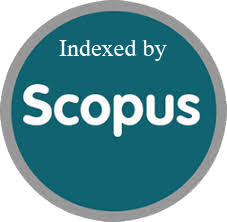Energy Management and Cost Reduction: A Predictive Approach to Monthly Electricity Billing in Mosul Residential Settings
Abstract
Efficient electrical power management is crucial for both suppliers and consumers, significantly affecting consumer budgets and national economies. In Iraq, residential electricity consumption constitutes 56% of the national demand, leaving households with unpredictable monthly bills due to the absence of real-time usage monitoring. This financial uncertainty worsens grid instability and hinders efficient energy management. This paper proposes a methodology for energy management by estimating monthly electricity bills. We propose a predictive billing system that estimates monthly costs by analyzing kWh meter readings at 6-hour intervals, aligned with Iraqs tiered pricing structure (10120 IQD/kWh). The readings were collected over 30 days from a household in Mosul (House-1). To simulate high-consumption households (House-2 and House-3), the dataset was subsequently expanded by generating statistically and mathematically modeled synthetic data based on House-1 readings. Five management strategies were tested, including dynamic reductions (210 kWh) triggered by tiered thresholds. This methodology not only provides an estimate but also offers suggestions to help reduce the total bill, ensuring it stays within a reasonable range. The implementation of the proposed methodology led to a decrease in electricity consumption between 6% and 23%, resulting in cost savings of 14% to 49% across three different household profiles. The tiered feedback approach (Scenario 4) achieved the highest monthly cost savings, with a 49% reduction for households consuming more than 4000 kWh per month. This approach empowers consumers to align usage with budgetary goals while alleviating grid stress. Future work will integrate IoT-based outage detection and mobile app deployment.
References
- I. E. Agency, Residential Consumption of Electricity, [Online]. Available: https://www. iea.org/countries/Iraq/ electricity.
- C. Benavente-Peces, On the energy efficiency in the next generation of smart buildings supporting technologies and techniques, Energies, vol. 12, no. 22, pp. 125, 2019, doi: 10.3390/en12224399.
- P. Bastida-Molina, J. Torres-Navarro, A. Honrubia-Escribano, and E. Gmez-Lzaro, Electricity consumption analysis for university buildings. Empirical approach for University of Castilla-La Mancha, campus Albacete (Spain), Renew. Energy Power Qual. J., vol. 20, no. 20, pp. 216221, 2022, doi: 10.24084/repqj20.266.
- Y. Ameen, O. Al-Yozbaky, and M. Al-Hafidh, Energy Efficiency Enhancement for Residential Sector: Case Study of Lighting in Iraq, Al-Rafidain Engineering Journal (AREJ), vol. 26, no. 1, pp. 5362, 2021, doi: 10.33899/rengj.2020.127999.1056.
- A. S. Abbas, E. A. Abbood, A. Alabaichi, and S. Abdulkadhm, Proposed prepaid system for electricity bills in Iraq, in 13th International Conference on Computer Engineering and Systems (ICCES). IEEE, pp. 658662, 2018, doi: 10.1109/ICCES.2018.8639424.
- H. H. Istepanian, Towards Sustainable Energy Efficiency in Iraq, Friedrich Ebert Stift., no. August, pp. 128, 2020.
- G. de Oliveira Cavalcanti and H. C. D. Pimenta, Electric Energy Management in Buildings Based on the Internet of Things: A Systematic Review, Energies, vol. 16, no. 15, 2023, doi: 10.3390/en16155753.
- A. Albatayneh, The Share of Energy Consumption by End Use in Electrical Residential Buildings in Jordan, Environ. Clim. Technol., vol. 26, no. 1, pp. 754766, 2022, doi: 10.2478/rtuect-2022-0058.
- E. A. Affum, K. A. P. Agyekum, C. A. Gyampomah, K. Ntiamoah-Sarpong, and J. D. Gadze, Smart Home Energy Management System based on the Internet of Things (IoT), Int. J. Adv. Comput. Sci. Appl., vol. 12, no. 2, pp. 722730, 2021, doi: 10.14569/IJACSA.2021.0120290.
- M. S. Sureshkumar, R. Rahul, S. Joshika, and S. Suraj, Internet-of-Things-Based Smart Home Energy Management System with Multi-Sensor Data Fusion, in Engineering Proceedings, vol. 66, no. 1, p. 10, 2024, doi: 10.3390/engproc2024066010.
- P. J. Kiruba, R. Ahila, M. Biruntha, and R. Kalpana, A Smart Energy Management System for Residential Buildings Using IoT and Machine Learning, E3S Web Conf., vol. 387, 2023, doi: 10.1051/e3sconf/202338704009.
- S. Mischos, E. Dalagdi, and D. Vrakas, Intelligent energy management systems: a review, Springer Netherlands, vol. 56, no. 10, pp. 11635-11674, 2023, doi: 10.1007/s10462-023-10441-3.
- I. M. Electricity, Iraqi Ministry of Electricity. [Online]. Available: https://moelc.gov.iq/.
- T. Khan, M. Alam, K. Kadir, Z. Shahid, and M. S. Mazliham, A novel cost-effective Home Energy Management System, Test Eng. Manag., vol. 83, no. 17480, pp. 1748017488, 2020.
- M. U. Saleem, M. R. Usman, M. A. Usman, and C. Politis, Design, Deployment and Performance Evaluation of an IoT Based Smart Energy Management System for Demand Side Management in Smart Grid, IEEE Access, vol. 10, pp. 1526115278, 2022, doi: 10.1109/ACCESS.2022.3147484.
- J. Leitao, P. Gil, B. Ribeiro, and A. Cardoso, A Survey on Home Energy Management, IEEE Access, vol. 8, pp. 56995722, 2020, doi: 10.1109/ACCESS.2019.2963502.
- I. Paraskevas, M. Barbarosou, R. Fitton, and W. Swan, Domestic smart metering infrastructure and a method for home appliances identification using low-rate power consumption data, IET Smart Cities, vol. 3, no. 2, pp. 91106, 2021, doi: 10.1049/smc2.12009.
- A. H. Tawfeeq, A. M. Hayder, and A. H. Ali, The essential factors to reduce energy consumption in Iraq, AIP Conf. Proc., vol. 2386, no. January 2022, doi: 10.1063/5.0066838.
- M. DellIsola, G. Ficco, L. Canale, B. I. Palella, and G. Puglisi, An IoT integrated tool to enhance user awareness on energy consumption in residential buildings, Atmosphere (Basel), vol. 10, no. 12, 2019, doi: 10.3390/ATMOS10120743.
- M. de Simn-Martn, J. J. Blanes-Peir, . de la Puente-Gil, A. Gonzlez-Martnez, and D. Borge-Diez, Electrical consumption profile clusterization: Spanish Castilla y Len regional health services building stock as a case study, Environ. - MDPI, vol. 5, no. 12, pp. 119, 2018, doi: 10.3390/environments5120133.








